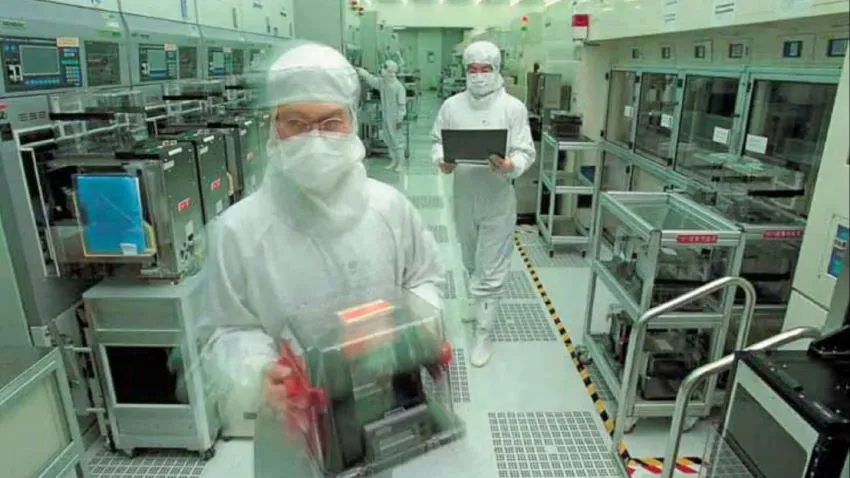
China is ramping up recruitment of Taiwanese talent in semiconductors, attracting top executives and engineers alike to bolster an industry that the U.S. trade war has shown to be a Chinese Achilles' heel.
The aggressive campaign has sparked concerns about a brain drain within Taiwan's chip industry, which is struggling to compete with generous offers by cash-rich mainland companies.
A man in his 50s left a longtime job at a leading Taiwanese semiconductor maker a year ago for a position on the mainland.
The man's salary more than doubled with the move, and his new employer pays for his child's private education. The decision was easy, the man said.
More than 3,000 semiconductor engineers have departed Taiwan for positions at mainland companies, the island's Business Weekly reports. Analysts at the Taiwan Institute of Economic Research say this figure appears to be accurate. That amounts to nearly one-tenth of Taiwan's roughly 40,000 engineers involved in semiconductor research and development.
The trend is not new. Richard Chang moved to the mainland in 2000 after his Taiwanese business was acquired by Taiwan Semiconductor Manufacturing Co., the world's leading contract chipmaker. Chang brought several hundred employees and launched Semiconductor Manufacturing International Corp. in Shanghai.
SMIC is now the world's fifth-largest contract chipmaker and has become a key rival for TSMC with backing from Beijing.
TSMC's former chief operating officer, Chiang Shang-yi, and research and development executive, Liang Mong-song, have taken high-ranking roles at state-affiliated players in China. Charles Kao, known as the "godfather" of Taiwan's DRAM industry, also joined Tsinghua Unigroup in 2015. Unigroup competes with Taiwanese players like Nanya Technology in dynamic random access memory.
But such career moves have accelerated under Beijing's "Made in China 2025" plan to foster self-sufficiency in high-tech industries.
Semiconductor manufacturing is both capital- and talent-intensive: Even with the best equipment on the market, a company cannot mass-produce chips without technicians to work on them.
"Chinese players are now trying to overcome the barrier by recruiting not only top executives, but entire production teams on the ground," a Taiwanese industry insider said. "They are paying two to three times as much as Taiwanese companies."
Taiwanese companies are finding themselves outmatched.
"We are improving our compensation, but it is difficult to compete with mainland companies," Nanya Technology President Lee Pei-ing said.
Taiwan updated its trade secrets act in 2013, imposing prison sentences of up to 10 years for leaking corporate secrets outside the island. But this has not deterred career moves to the mainland in the semiconductor industry.
The effect of these transplants is noticeable. China's Changxin Memory Technologies and Yangtze Memory Technologies next year are slated to start mass-producing memory chips, one of Taiwan's strengths.
As a market for semiconductor manufacturing equipment, mainland China is expected to surpass Taiwan as the world's largest next year.
In addition to bolstering the mainland's chip industry, Beijing also may be rolling out the red carpet for Taiwanese engineers as a step toward its longtime goal of reunification. Beijing announced 26 measures in November aimed at treating Taiwanese equally to mainland Chinese, advocating for more Taiwanese to work and study on the mainland.
"The goal is to bring Taiwanese talent to the mainland and hollow out Taiwan," said Meng Chih-cheng, an associate professor at Taiwan's National Cheng Kung University.




















